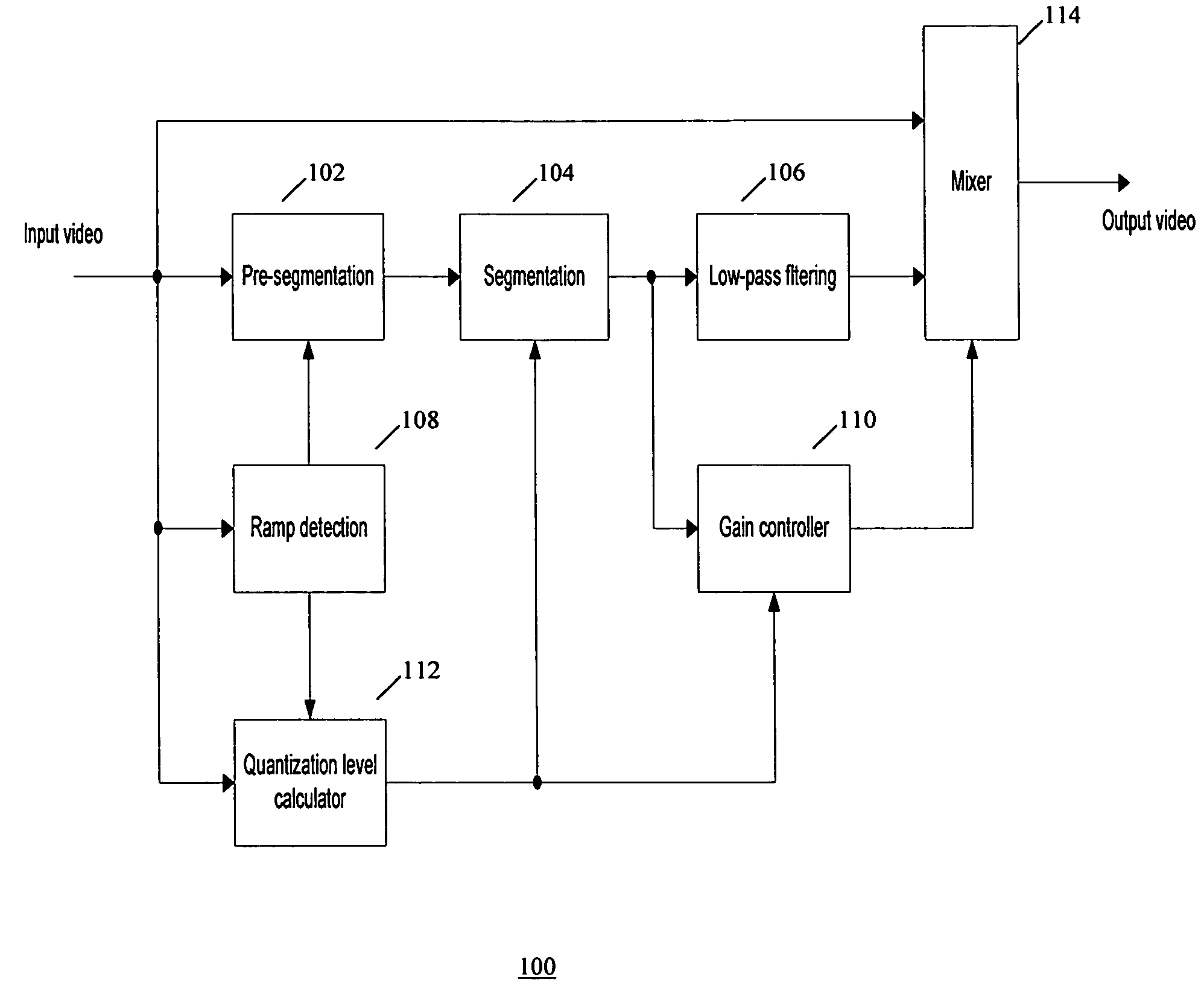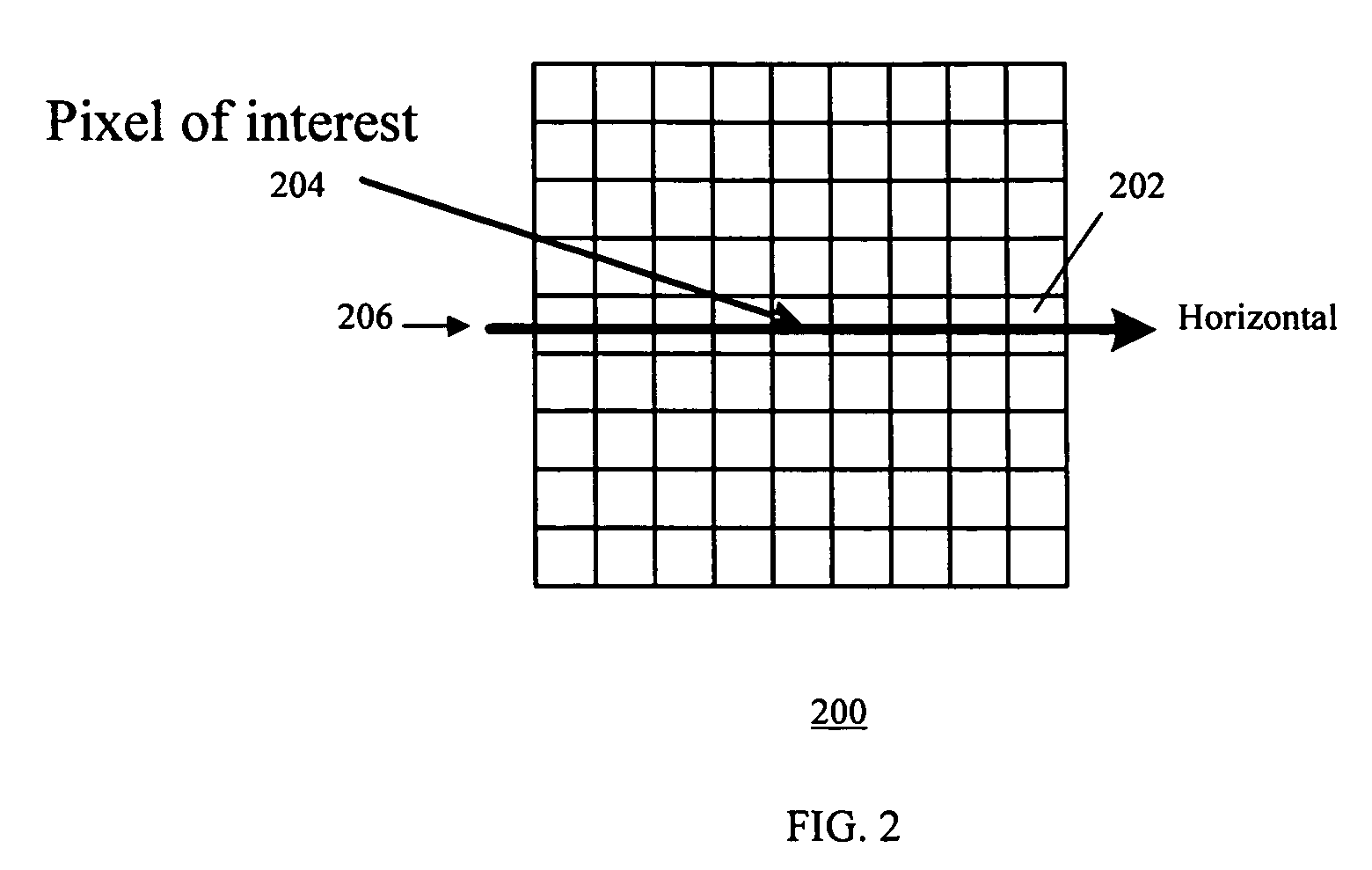Method and system for quantization layer reduction in digital image processing
a digital image and quantization layer technology, applied in the field of digital image processing, can solve the problems of difficult identification of quantization artifacts in digitized images of natural scenes, the smooth transition of natural scenes in the digitized image no longer looks smooth in the digitized image, and the quantization artifacts of digital images may contain quantization artifacts, so as to reduce the quantization layer and reduce the difficulty of quantization artifact detection, the effect of improving the accuracy of quantization
- Summary
- Abstract
- Description
- Claims
- Application Information
AI Technical Summary
Benefits of technology
Problems solved by technology
Method used
Image
Examples
Embodiment Construction
[0021]The present invention provides a method and a system for reducing the quantization layer in a quantized image. In one embodiment of the present invention, reducing the quantization layer involves detecting if each pixel in an image area belongs to a ramp area in a certain direction in the input image. Based on such ramp detection, a quantization level is dynamically selected.
[0022]FIG. 1 shows an example of a functional block diagram of an embodiment of an image processing system 100 which implements a quantization layer reduction method according to an embodiment of the present invention. The system 100 comprises a pre-segmentation module 102, a segmentation module 104, a low-pass filtering module 106, a ramp detection module 108, a gain controller module 110, a quantization level calculator module 112, and a mixer module 114. In an example shown in FIG. 2, the system 100 performs quantization layer reduction in a pre-defined direction for each pixel in an area (window) 200 t...
PUM
 Login to View More
Login to View More Abstract
Description
Claims
Application Information
 Login to View More
Login to View More - R&D
- Intellectual Property
- Life Sciences
- Materials
- Tech Scout
- Unparalleled Data Quality
- Higher Quality Content
- 60% Fewer Hallucinations
Browse by: Latest US Patents, China's latest patents, Technical Efficacy Thesaurus, Application Domain, Technology Topic, Popular Technical Reports.
© 2025 PatSnap. All rights reserved.Legal|Privacy policy|Modern Slavery Act Transparency Statement|Sitemap|About US| Contact US: help@patsnap.com



